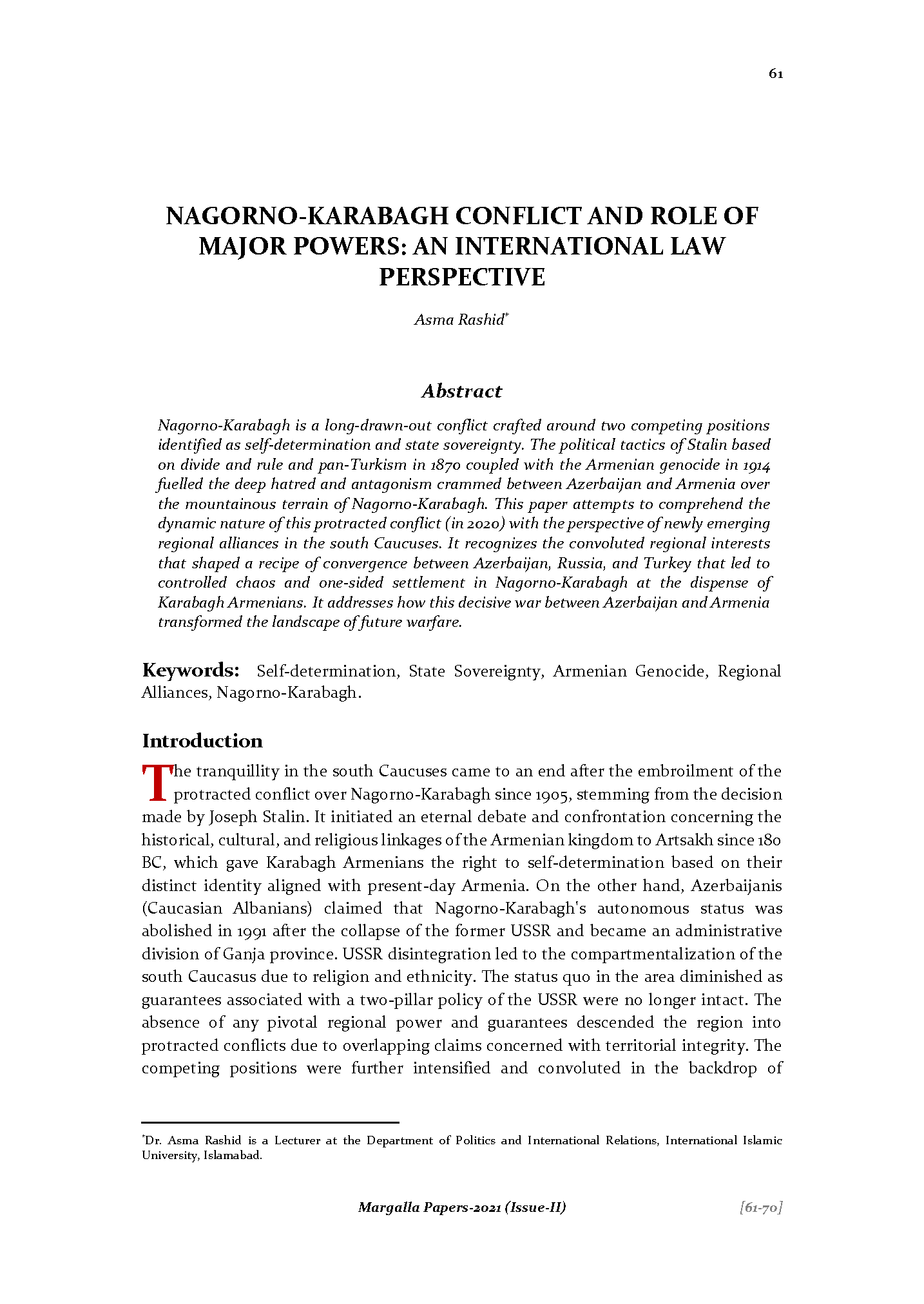NAGORNO-KARABAGH CONFLICT AND ROLE OF MAJOR POWERS: AN INTERNATIONAL LAW PERSPECTIVE
DOI:
https://doi.org/10.54690/margallapapers.25.2.73Keywords:
Self-determination, State Sovereignty, Armenian Genocide, Regional Alliances, Nagorno-KarabaghAbstract
Nagorno-Karabagh is a long-drawn-out conflict crafted around two competing positions identified as self-determination and state sovereignty. The political tactics of Stalin based on divide and rule and pan-Turkism in 1870 coupled with the Armenian genocide in 1914 fuelled the deep hatred and antagonism crammed between Azerbaijan and Armenia over the mountainous terrain of Nagorno-Karabagh. This paper attempts to comprehend the dynamic nature of this protracted conflict (in 2020) with the perspective of newly emerging regional alliances in the south Caucuses. It recognizes the convoluted regional interests that shaped a recipe of convergence between Azerbaijan, Russia, and Turkey that led to controlled chaos and one-sided settlement in Nagorno-Karabagh at the dispense of Karabagh Armenians. It addresses how this decisive war between Azerbaijan and Armenia transformed the landscape of future warfare.
Bibliography Entry
Rashid, Asma. 2021. "Nagorno-Karabagh Conflict and Role of Major Powers: An International Law Perspective." Margalla Papers 25 (2): 61-70.

Downloads
Published
How to Cite
Issue
Section
License
Copyright (c) 2021 Asma Rashid

This work is licensed under a Creative Commons Attribution-NonCommercial 4.0 International License.












